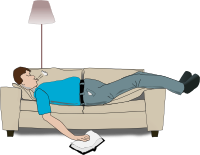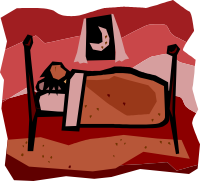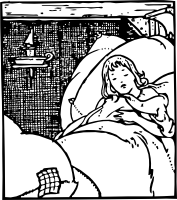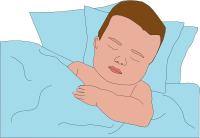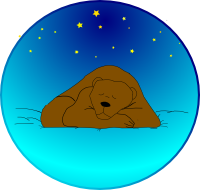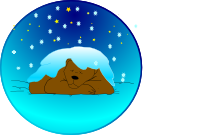Associations to the word «Sleep»
Noun
- Lag
- Poppy
- Deep
- Sentry
- Obesity
- Motel
- Airway
- Afternoon
- Usual
- Mosquito
- Attic
- Dysfunction
- Anesthesia
- Disruption
- Medication
- Clothes
- Weep
- Drunk
- Room
- Hypertension
- Epilepsy
- Odysseus
- Respiration
- Cabin
- Malaria
- Cloak
- Rhythm
- Outdoors
- Symptom
- Mat
- Barn
- Thicket
- Rubbing
- Nausea
- Bower
- Walking
- Respite
- Perspiration
- Babe
- Reverie
- Tarzan
- Covering
- Thirst
- Eating
- Sweating
- Syndrome
- Moonlight
- Vigilance
- Hunger
- Exertion
- Neurotransmitter
- Moan
- Cushion
- Dew
- Rug
- Tonight
- Opium
- Go
- Cessation
- Log
- Sufferer
- Shelter
- Asthma
Adjective
Pictures for the word «Sleep»
Wiktionary
SLEEP, noun. (uncountable) The state of reduced consciousness during which a human or animal rests in a daily rhythm.
SLEEP, noun. (countable) (informal) An act or instance of sleeping.
SLEEP, noun. (uncountable) Rheum found in the corner of the eyes after waking, whether real or a figurative objectification of sleep (in the sense of reduced consciousness).
SLEEP, noun. A state of plants, usually at night, when their leaflets approach each other and the flowers close and droop, or are covered by the folded leaves.
SLEEP, verb. (intransitive) To rest in a state of reduced consciousness.
SLEEP, verb. (intransitive) (Of a spinning top) to spin on its axis with no other perceptible motion.
SLEEP, verb. (transitive) To accommodate in beds.
SLEEP, verb. (transitive) To be slumbering in (a state).
SLEEP, verb. To be careless, inattentive, or unconcerned; not to be vigilant; to live thoughtlessly.
SLEEP, verb. To be dead; to lie in the grave.
SLEEP, verb. To be, or appear to be, in repose; to be quiet; to be unemployed, unused, or unagitated; to rest; to lie dormant.
SLEEP, verb. (computing) to wait for a period of time without performing any action
SLEEP APNEA, noun. (pathology) Brief interruptions of breathing during sleep.
SLEEP APNOEA, noun. Alternative form of sleep apnea
SLEEP AROUND, verb. (idiomatic) To have numerous sexual partners.
SLEEP CAMEL, noun. (slang) (idiomatic) A person who habitually does with little to no sleep during the week and then makes up by sleeping a lot during the weekend.
SLEEP DEBT, noun. The cumulative effect of not getting enough sleep.
SLEEP DEPRIVATION, noun. The condition of forcibly (by someone else, or by a sleep disorder) being kept awake, to the point of noticeably lower alertness. A dangerous amount of sleep deprivation can cause fatal vehicular accidents.
SLEEP DISORDER, noun. (pathology) A medical disorder of the sleep patterns of a person or animal.
SLEEP DISORDERS, noun. Plural of sleep disorder
SLEEP HYGIENE, noun. The control of behavioural and environmental factors in order to ensure effective sleep.
SLEEP IN, verb. (intransitive) (idiomatic) To sleep late; to go on sleeping past one's customary or planned hour.
SLEEP LIKE A BABY, verb. (simile) To sleep very well, especially peacefully
SLEEP LIKE A LOG, verb. (simile) To sleep heavily, long and without disturbance.
SLEEP LIKE A TOP, verb. To sleep very soundly.
SLEEP MASK, noun. A blindfold made to ease sleeping by covering the eyes to block all light.
SLEEP MODE, noun. (computing) the state of a computer system (especially a laptop), in which the screen and hard drive are switched off, and the only task running monitors external activity (such as a key press) which restores the system to its active state
SLEEP OFF, verb. To get rid of (a pain, illness, condition) by sleeping.
SLEEP ON, verb. Used other than as an idiom: see sleep, on.
SLEEP ON, verb. (idiomatic) To postpone a decision at least overnight.
SLEEP ON IT, verb. (idiomatic) To postpone a decision until the following day to avoid making a hasty choice.
SLEEP OVER, verb. To spend the night as a guest in someone's home.
SLEEP PARALYSIS, noun. The normal paralysis of the body that occurs during REM sleep.
SLEEP PARALYSIS, noun. A situation where a person is not fully awake, and although conscious of their surroundings, unable to move or speak, often accompanied by feelings of terror.
SLEEP ROUGH, verb. (idiomatic) To sleep outdoors, without a place to go home to.
SLEEP SCHEDULE, noun. A pattern of sleeping and waking; especially a regular pattern of sleeping and waking designed to promote health
SLEEP START, noun. A hypnic jerk.
SLEEP STARTS, noun. Plural of sleep start
SLEEP TALK, verb. To talk whilst asleep - often unintelligibly
SLEEP TIGHT, interjection. (nightly farewell) good night
SLEEP TOGETHER, verb. (idiomatic) To have sex with
SLEEP TOGETHER, verb. (idiomatic) To be intimate with another person in the same bed
SLEEP TWITCH, noun. A hypnic jerk.
SLEEP TWITCHES, noun. Plural of sleep twitch
SLEEP UNDER THE SAME BRIDGE, verb. (idiomatic) a critique of a law where circumstances are ignored.
SLEEP UNDER THE SAME BRIDGE, verb. To be formally, but not actually, equal under the law.
SLEEP WITH, verb. To share a bed or bedroom with.
SLEEP WITH, verb. (idiomatic) To have sexual intercourse with.
SLEEP WITH ONE EYE OPEN, verb. (figurative) To remain vigilant at all times, so as to avoid being caught off guard.
SLEEP WITH THE FISHES, verb. (idiomatic) To be killed and have one's body disposed of in the sea or other body of water.
Dictionary definition
SLEEP, noun. A natural and periodic state of rest during which consciousness of the world is suspended; "he didn't get enough sleep last night"; "calm as a child in dreamless slumber".
SLEEP, noun. A torpid state resembling deep sleep.
SLEEP, noun. A period of time spent sleeping; "he felt better after a little sleep"; "there wasn't time for a nap".
SLEEP, noun. Euphemisms for death (based on an analogy between lying in a bed and in a tomb); "she was laid to rest beside her husband"; "they had to put their family pet to sleep".
SLEEP, verb. Be asleep.
SLEEP, verb. Be able to accommodate for sleeping; "This tent sleeps six people".
Wise words
The short words are best, and the old words are the best of
all.

